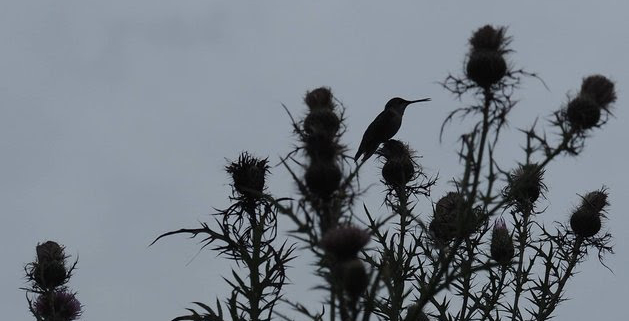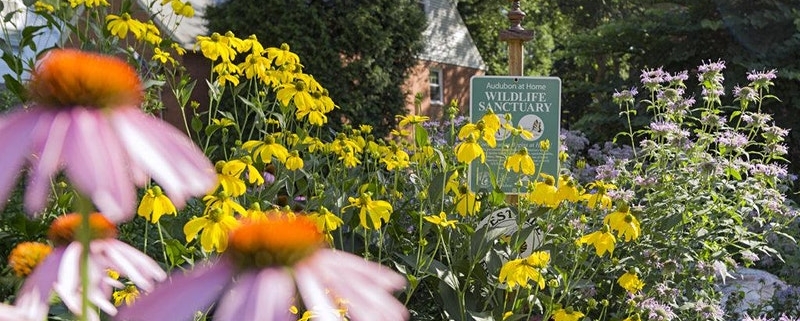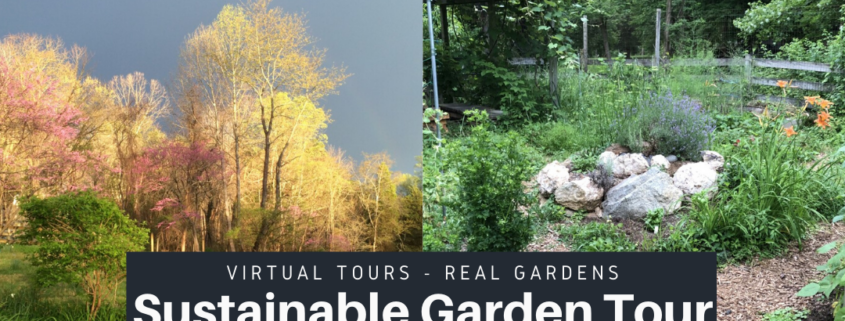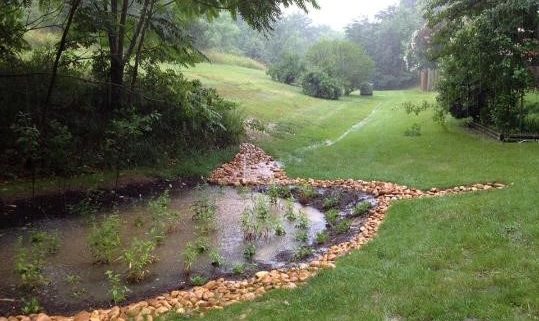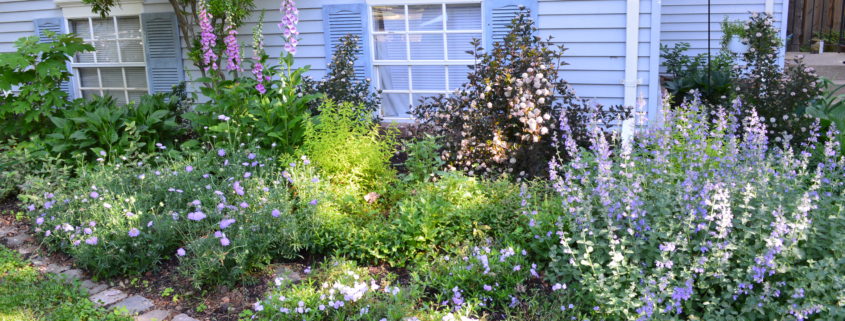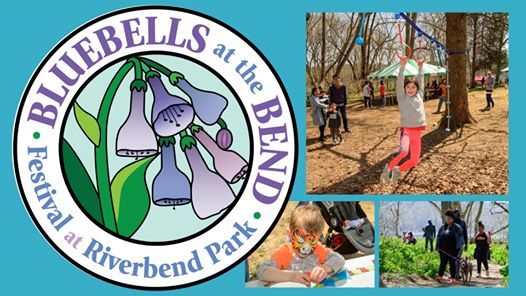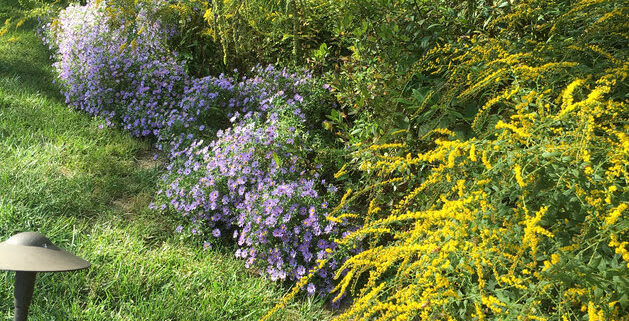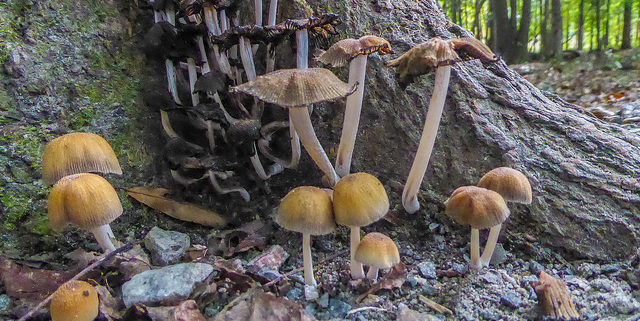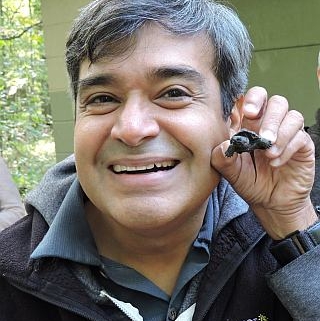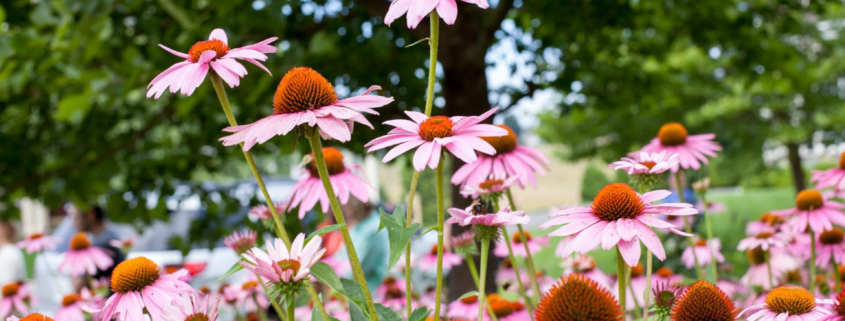Making Friends with the Hummingbirds
Article by Margaret Fisher, Plant NOVA Natives
Fall is a great time to work on the guest list for next year’s garden party. Hummingbirds make some of the best guests of all, or to put it more accurately, we can make ourselves better guests of them by providing what they need around their homes, otherwise known as our yards. Our local Ruby-throated Hummingbirds are migratory, departing Virginia in September for Central America and returning to the place they were born in mid-April. It will not surprise anyone to know that what they need when they arrive back is not sugar water but an intact ecosystem that provides food and shelter for them and their offspring.
It is well known and indeed true that hummingbirds are attracted to bright colors, especially red, so for viewing opportunities, do plant Eastern Red Columbine and Coral Honeysuckle for spring blooms, Scarlet Beebalm for early summer and Cardinal Flower for late summer. It is fun to watch the hummingbirds make the rounds from plant to plant, timing it exactly to when the nectar has had a chance to re-accumulate. All of these plants co-evolved with hummingbirds and have the tubular-shaped red flowers that fit the bill – literally. Hummingbirds have incredible memories and know the location of individual flowers not only around their own homes but along the thousands of miles of their migration routes. They also recognize humans as individuals, learning to trust you and hovering in front of you when they are wondering when you are going to refill their feeder, if you have been in the habit of providing one.
Although we think of hummingbirds as nectar eaters, the great majority of their diet is made up of insects and spiders. We can provide them with insects by planting native plants. Because most insects can only eat the plants with which they evolved, a yard full of European and Asian plants such as turf grass and Japanese azaleas is largely an empty yard, devoid of food sources not only for hummingbirds but for songbirds in general. The red-flowering plants that were named above are all native to our area, as are hundreds of other garden-worthy plants which are increasingly being planted in our yards as Virginians start to recognize the beauty of our own flora as well as its value for the non-human residents of our properties.
The ideal time to plant is in the fall, which gives the plants a chance to become well established before facing the heat and droughts of summer. To help you plan, the Plant NOVA Natives website has a plant finder function in which you can search specifically for plants that attract hummingbirds. There are also lists of local garden centers that specialize in native plants as well as lists of conventional garden centers where Plant NOVA Natives volunteers are labeling the natives with red stickers. Just for fun, check out our silly one minute video of local hummingbirds and other critters interacting with native plants. And when your neighbors stop by to gawk at the sight of hummingbirds in your yard, you can give them this pamphlet so they can learn about planting natives in their yards to attract hummingbirds, too.


